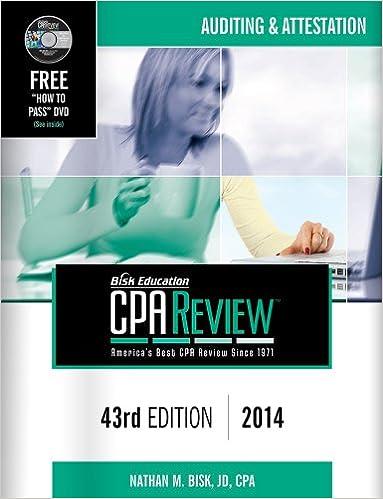Question
Ed has a collection of old clothing. He received it as a gift from his grandfather two years ago. His grandfather thought the clothing was
Ed has a collection of old clothing. He received it as a gift from his grandfather two years ago. His grandfather thought the clothing was over 200 years old and a valuable antique. On December 31, 2019, Ed decides to donate the clothing to a qualified charity. The charity personnel search online for information on the clothing and believe it is antique. They believed the fair market value was approximately $3,000 and provided Ed with a receipt. Assume Eds basis is $0.00. Which statement is most accurate?
-
a) The clothing is ordinary income property. The amount of the deduction is equal to the FMV of the property less the amount of income that would have been reported if the property was sold. Ed will have to wait for the charity to sell the clothing to determine the amount of the deduction.
-
b) The clothing is ordinary income property. The amount of the deduction is equal to the FMV of the property less the amount of income that would have been reported if the property was sold. Ed will be entitled to a deduction of $3,000 upon his delivery of the property to the charity.
-
c) The clothing is capital gain property. The amount of the deduction is equal to FMV of the property.
-
d) The clothing is capital gain property. The amount of the deduction cannot be determined without more information regarding the nature of the charity and their use of the donated property.
-
e) None of the above
On June 1, 2020 the charity sent Ed a letter from a professional appraiser who determined that the clothing was a replica and only 100 years old. The true value of the clothing is $300. Ed filed his 2019 tax return on January 1, 2020. Which statement is most accurate?
-
a) Ed should file an amended returned if he Itemized (Schedule A) and will be assessed a penalty for the overvaluation of the deduction.
-
b) Ed should file an amended returned if he did not Itemize (Schedule A) and will be assessed a penalty for the overvaluation of the deduction.
-
c) Ed will not be assessed with a penalty for the overvaluation of the deduction.
-
d) More information is required.
-
e) None of the above.
Step by Step Solution
There are 3 Steps involved in it
Step: 1

Get Instant Access to Expert-Tailored Solutions
See step-by-step solutions with expert insights and AI powered tools for academic success
Step: 2

Step: 3

Ace Your Homework with AI
Get the answers you need in no time with our AI-driven, step-by-step assistance
Get Started


